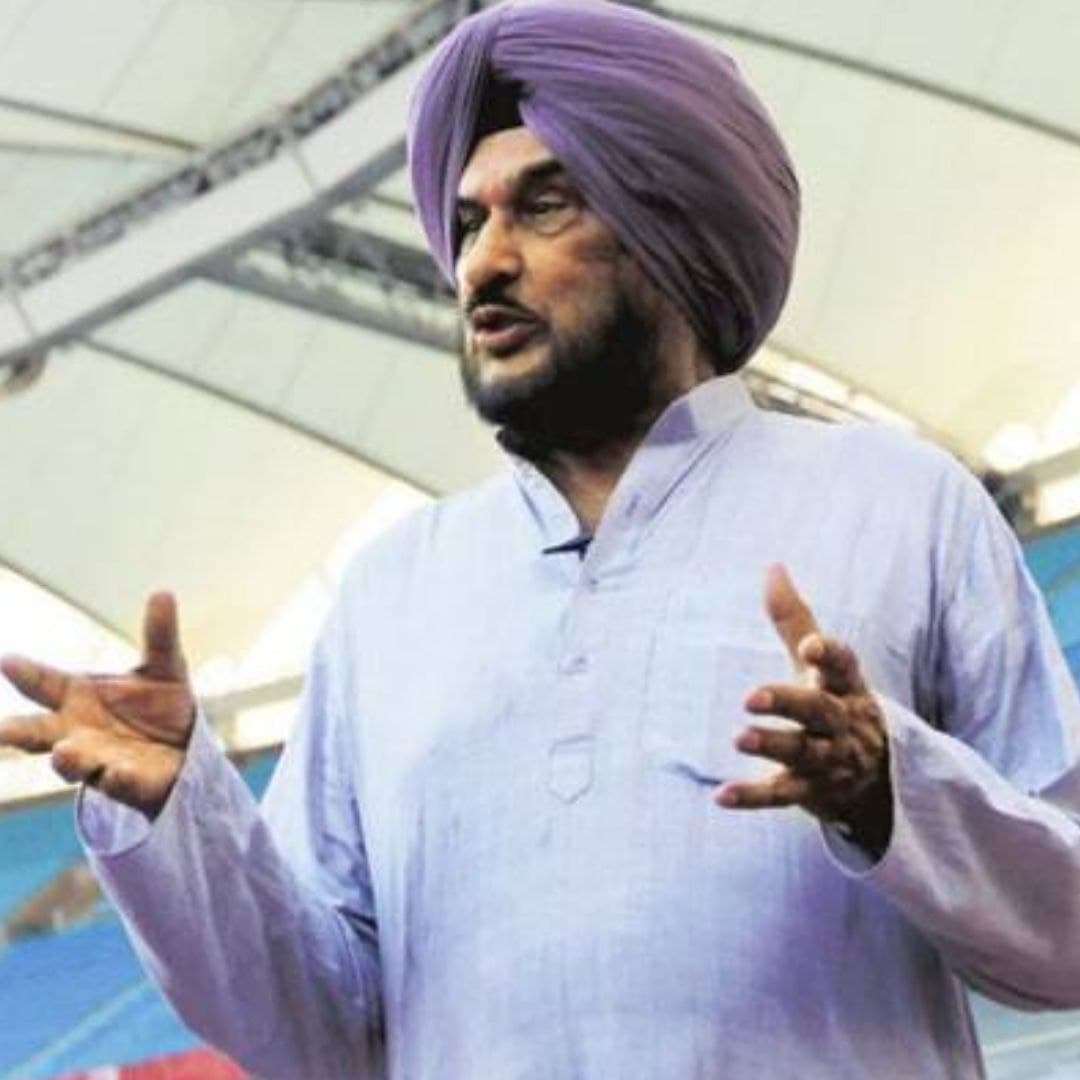
Image Credit: The Indian Express
Gurbachan Singh Randhawa: Know About The First Arjuna Awardee In Athletics Who Set Four National Records In Two Days
Writer: Anuran Sadhu
A post grad journalism student of SIMC, Pune with a passion for using words to get my message across in the most unique ways possible and curiosity is the force that drives me to learn and experience more every day.
India, 16 Aug 2021 5:55 AM GMT
Editor : Madhusree Goswami |
A mountain girl trying to make it big in the city. She loves to travel and explore and hence keen on doing on-ground stories. Giving the crux of the matter through her editing skills is her way to pay back the journalism its due credit.
Creatives : Anuran Sadhu
A post grad journalism student of SIMC, Pune with a passion for using words to get my message across in the most unique ways possible and curiosity is the force that drives me to learn and experience more every day.
In 1962, Randhawa set four national records and was declared Asia’s best athlete at the Jakarta Asian Games. In 2005, the legendary athlete was conferred with the Padmasree award
Close to 900 individuals have received Arjuna Award since its introduction in 1961. Yet, one of the first athletes to receive it, who had little idea of the award, remains a towering personality in Indian athletics history. This is the story of four time national record holder Gurbachan Singh Randhawa.
Born in Nagli, a small Punjab village, in 1939, Randhawa had no association with athletics tracks till he was 12. Instead, like his father, his interest was in football and volleyball. However, one day as he was heading to drink water after playing, something spectacular happened.
The Jump That Sealed His Destiny
As he was walking, he saw a badminton net in his path, and instead of going under the net, he decided to jump over it. This act caught the eye of one of his school's physical trainers, and he was called over. While he thought he would get punished for carrying out the stunt, much to his surprise, he was asked to jump over the net again. And he did. He was asked to jump again, which he did without breaking a sweat, only to be told that he just jumped over a five-foot-high net. The coach was so impressed he made Randhawa take athletics, and this is how his journey in field and track began.
During his high school, Randhawa won several medals, and in 1957 before he could even join college, he had already broken the All India University record, according to Scroll. As he grew up, he became more versatile. At 21, Randhawa won the national title in the decathlon and broke the national record in high jump set by CM Muthiah. Interestingly, this was his first time at the Nationals. His remarkable achievement in athletics at such a young won him the Arjuna Award in 1961 – the year the prestigious award was introduced.
Asia's Best
Gurbachan Singh Randhawa had also qualified for the 1960 Olympics for the decathlon event. However, it ended in disappointment, but the athlete from Punjab went on to set new records in the National Games. In just two days, Randhawa set four national records in 1962, then became the only male athlete to set four national records. In the same year, Randhawa participated in the Jakarta Asian Games and won the gold medal in the decathlon and was declared Asia's best athlete. However, due to a shoulder and elbow injury, his success in the decathlon came to an abrupt end. Due to the lack of specialists and physiotherapists in India, Randhawa had to do away with javelin throwing and shifted his focus entirely on hurdles.
Tokyo Games 1964
One of the best moments in his glorious career came at the 1964 Tokyo Games. Randhawa clocked 14.3 seconds in the heat and qualified for the semi-finals. With heavy rainfall and temperature dropping as low as 14 degrees C, the tournament became even more challenging for Randhawa in the semis. Randhawa still managed to end up in the second spot and qualify for the finals after clocking 14.04 seconds. He again clocked 14 seconds in the finals but could only finish fifth and missed out on the podium finish. It was a heart-breaking moment for Indian athletes, as Milkha Singh, too, had missed out on a medal just four years ago. After the 1966 Commonwealth Games, Randhawa finally hung his boot.
In 2005, the legendary athlete was conferred with the Padmasree award. The Olympic medal he missed in the 1964 Tokyo Games was finally recovered by yet another extraordinary athlete in Neeraj Chopra, 57 years later. Coincidentally, it was again in Tokyo.
Also Read: Klaus Bartonietz: Know The German Coach Behind Neeraj Chopra's Olympic Gold
 All section
All section














